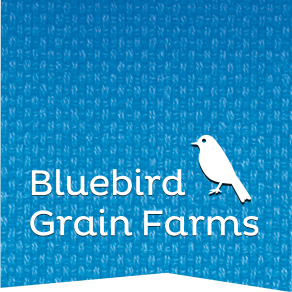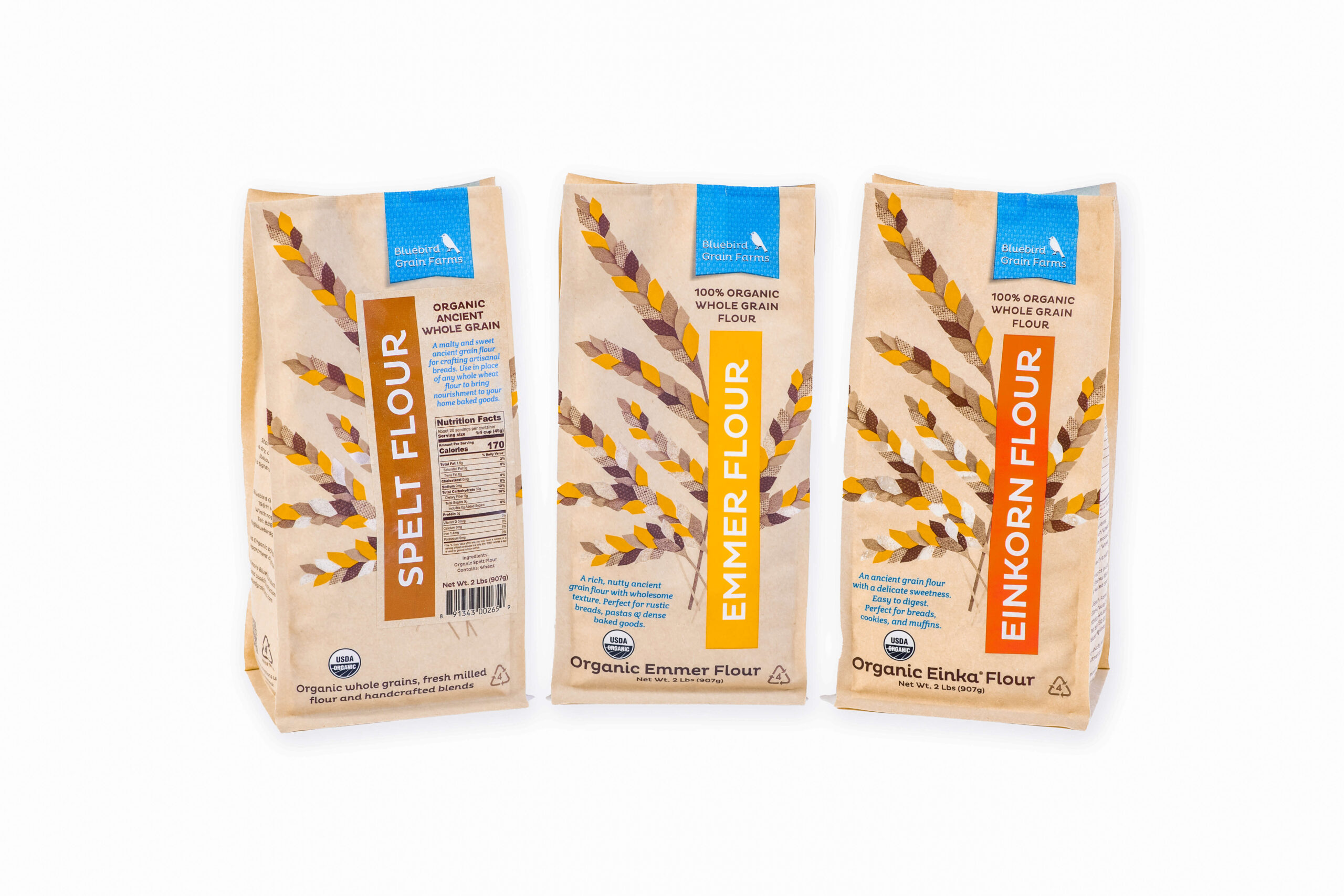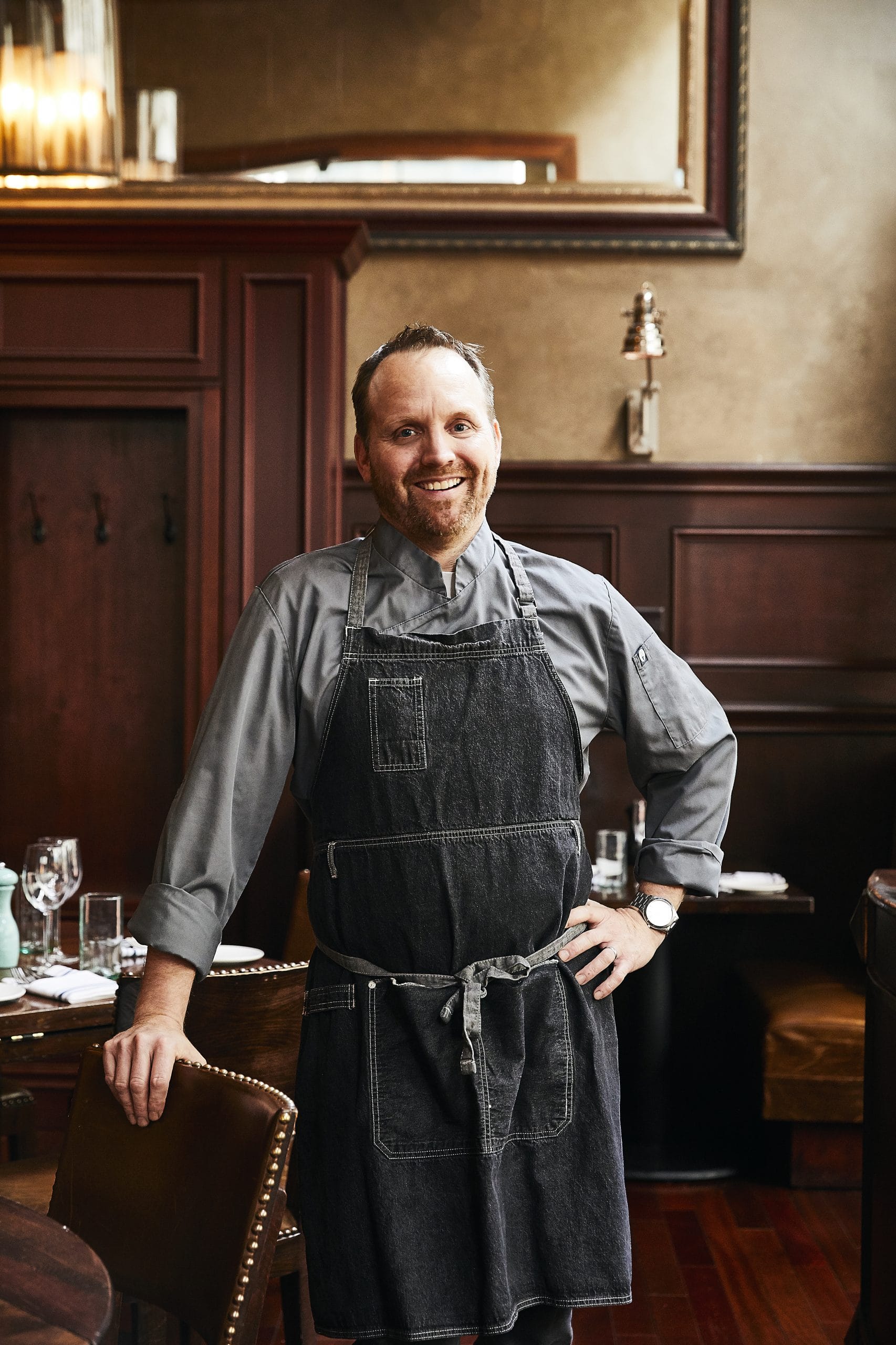
by Ashley Lodato
Bluebird Grain Farms staff writer
photos by Aubrie Pick
With a resume that includes culinary leadership at restaurants named for the Pacific Northwest’s most renowned explorers, Executive Chef Dolan Lane might be mistaken for a man who favors hardtack and pemmican. After all, the namesakes of Portland restaurants Clarklewis and Meriwether’s survived quite happily on such fare for more than two grueling years, making their way across plains and over mountain ranges in the quest for western expansion. But although Lane’s menus feature more carefully curated and varied cuisine, there’s one thing Chef Lane has in common with the crews of Captain Meriwether Lewis and Second Lieutenant William Clark, whose parties hunted and foraged their way across the western territories from 1804-1806: he’s partial to locally-sourced, seasonally-available ingredients.
Chef Lane’s culinary roots lie in the adage that necessity is the mother of invention. A south Seattle suburb latchkey kid in the 1970s and 1980s, Lane learned to fend for himself early, coming home after school and making omelets for himself and, often, a few friends, to tide over the hunger pangs until dinner. “I still have a thing for omelets,” he says.
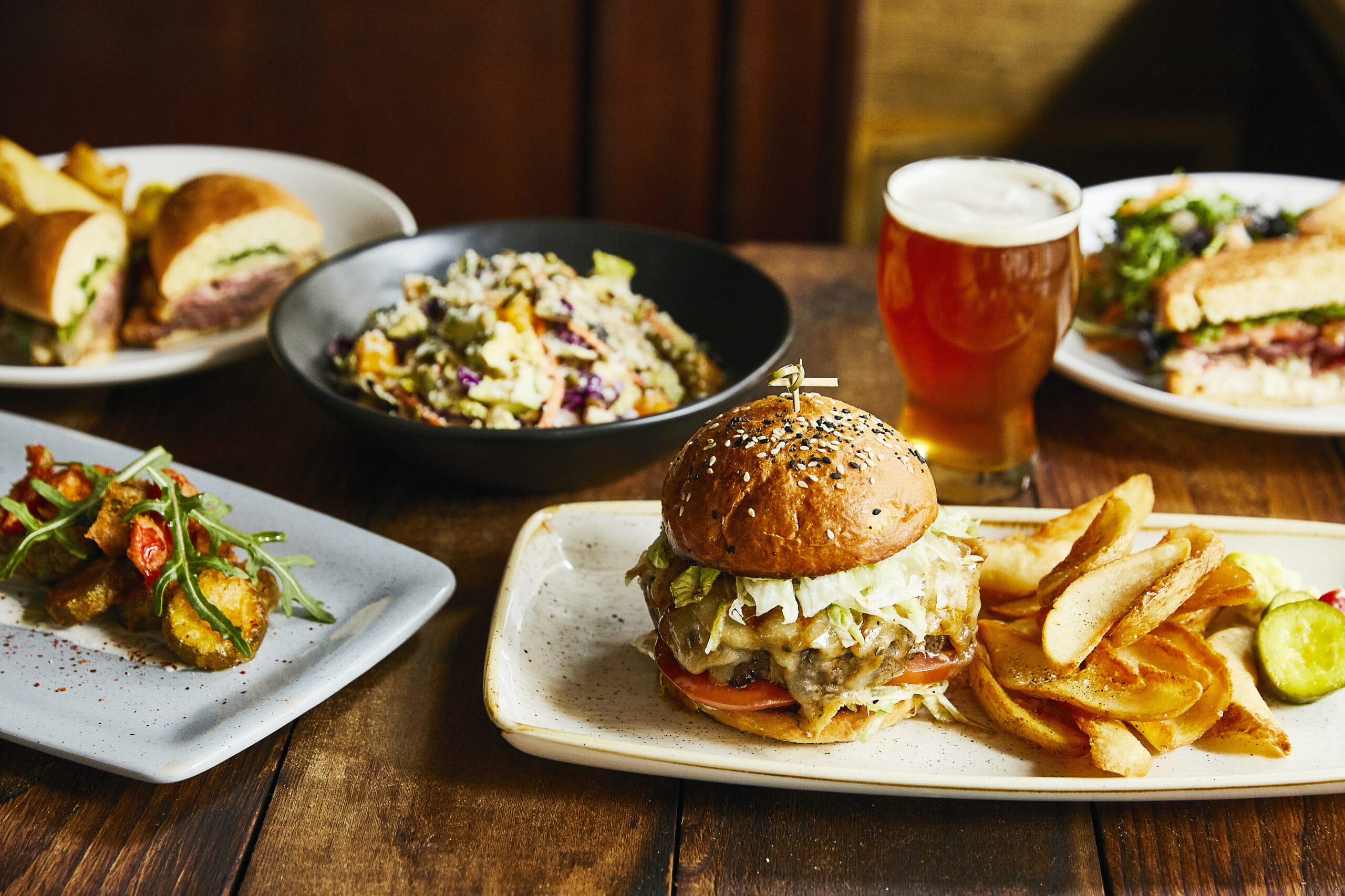
Although Lane’s parents worked full time, his mother always cooked and the family ate at 5pm without fail, winter or summer. “My mom had a great repertoire,” Lane says. “It was always very straightforward and consistent: pork chops, pot roast, a green salad with every dinner. Once a week we’d go out for dinner.”
Before his mother got home from work, Lane would experiment in the kitchen. “My mom would come home and there would be spaghetti noodles stuck to the wall,” he says, “because I’d read that that was the way to test if they were cooked.” (It’s not, and Lane now knows that.)
Lane took his first cooking job at a mom and pop Italian restaurant when he was 17, making pizzas. “Even at that age,” he says, “I loved it. I knew I wanted to be involved in restaurants.”
But instead of following work he found fulfilling, Lane went to photography school. Unsurprisingly, he didn’t stick with it. “I just wasn’t feeling it,” he says. Instead, he spent a summer working at a friend’s resort and subsequently was accepted at the California Culinary Academy. When he graduated, Lane says, “I was young, I was just out of school, and I hadn’t traveled much.” So he got a job cooking on cruise ships, sailing around the Caribbean and Mediterranean working with a crew of 11 in the kitchen to provide meals for nearly 200 guests on the ship. “I had a great time,” Lane says, “and we did a pretty good job with the food, cooking in that environment for so many people.”
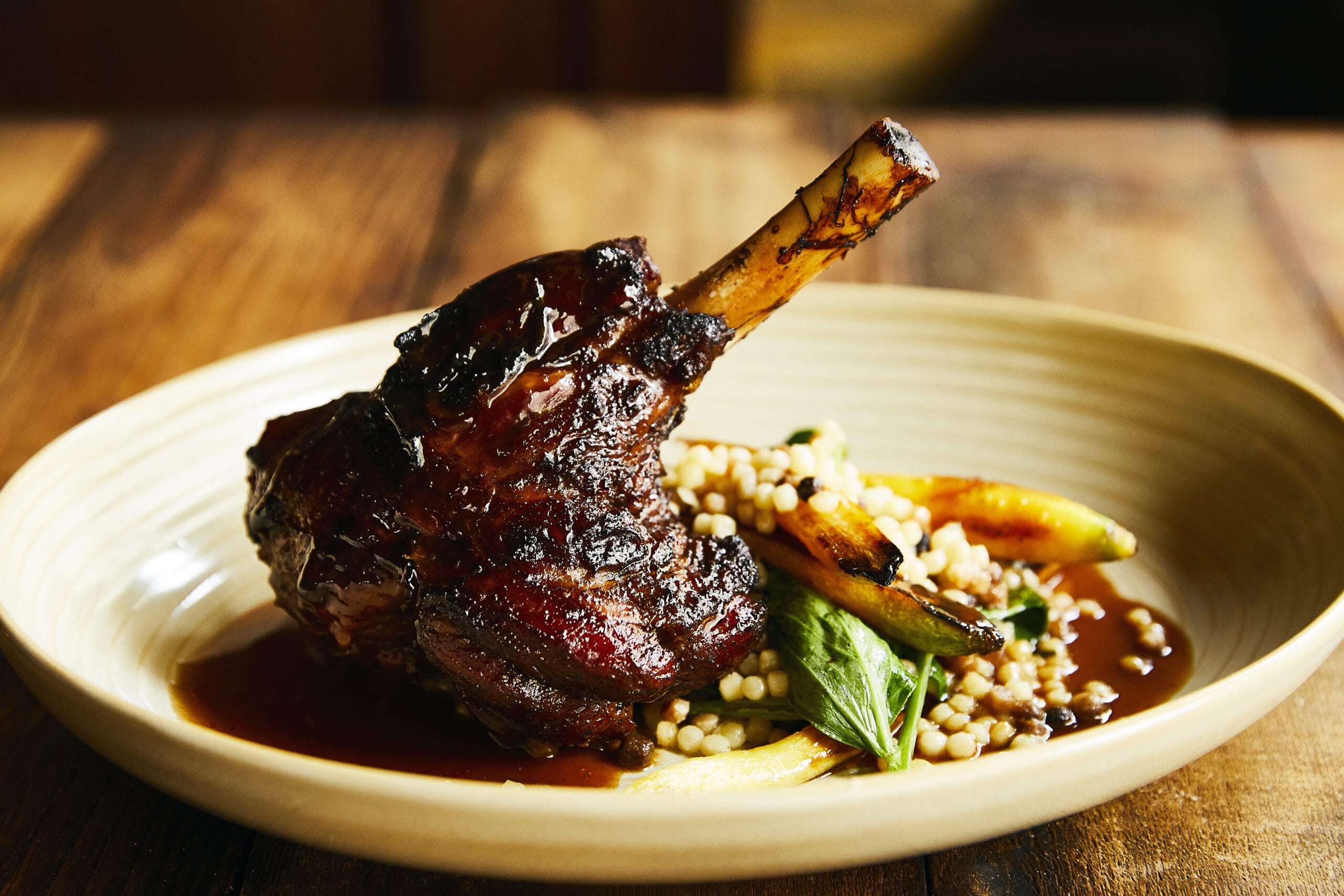
After a stint on a local cruise line running trips from Portland, OR to Lewiston, ID in 1998, Lane spent some time in Portland and has been there ever since, working as chef de cuisine and later executive chef at Bluehour, in addition to Clarklewis and Meriwether’s.
Cooking at Clarklewis was instrumental in Lane’s development of a reputation as a chef with strong ties to farm-to-table philosophy. “Clarklewis really came with a big history,” he says. “That’s when I really started meeting farmers and foragers. We were going to farmers markets three days a week, hand selecting produce, and writing menus on that.”
At Meriwether’s, says Lane, he would walk around the restaurant’s Skyline Farm with farm manager Caitlin Blood and talk about what she would like to grow and what he would do with the products. On days when Lane couldn’t visit the farm Blood sent him pictures of products like carrots, held in her hand for scale. “Pick them today,” he’d tell her, or “Wait until tomorrow.”
“I developed a deep connection to the farm products,” Lane says. “The farm grew such quality produce. I was able to pass that information on to the restaurant’s guests. It wasn’t just a marketing tool. I was really able to talk about the farm and what we were trying to do with all the amazing different varietals we were able to grow and how we were able to get the absolute freshest ingredients onto the table the same day they were harvested.”
The flip side of farming, however, is that sometimes crops don’t well as hoped, and sometimes they exceed expectations. “And then we ask, ‘What are we going to do with all this basil?’” Lane says. “You can only do so much pesto.”
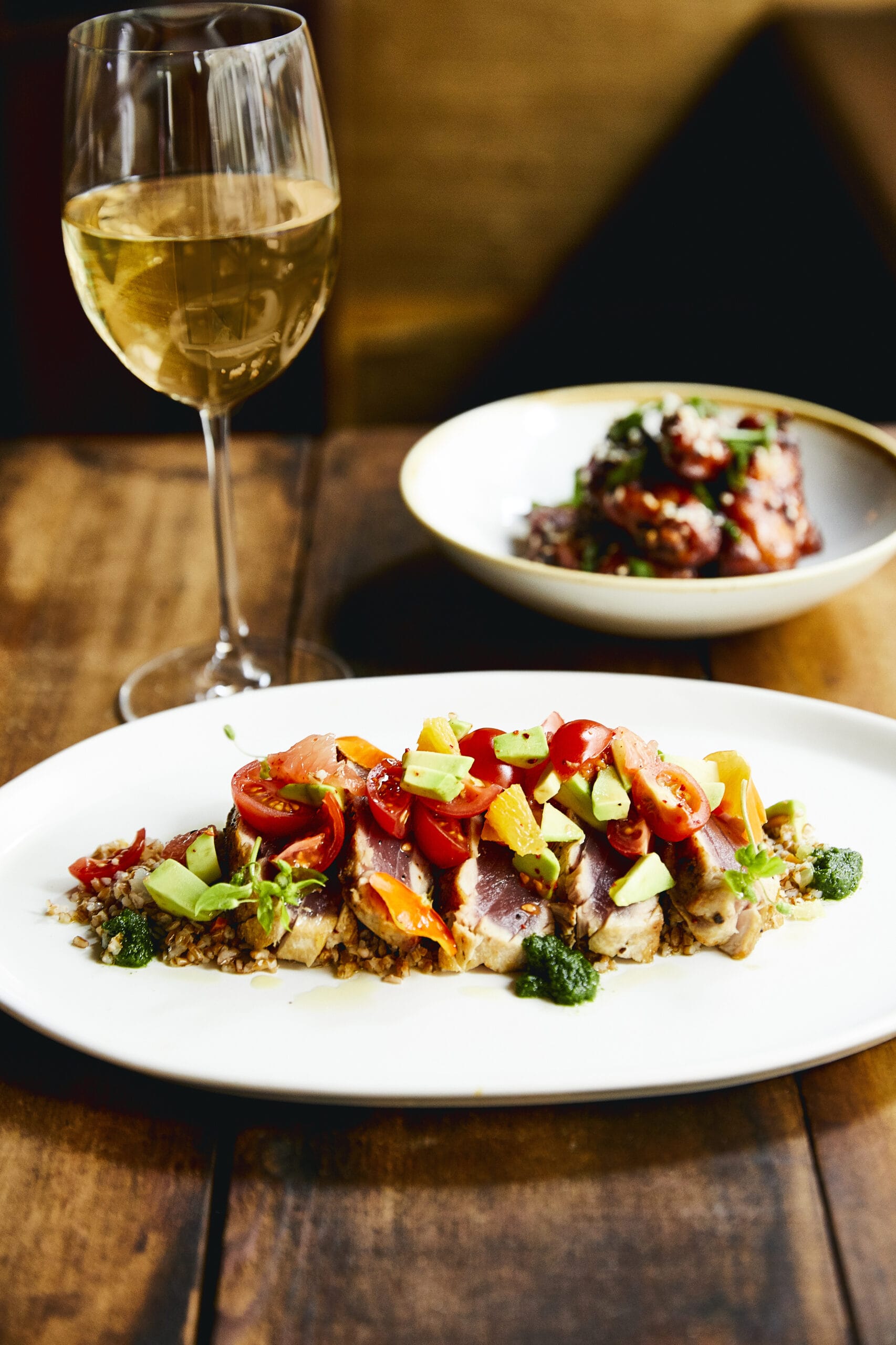
Lane has long been inspired by other farm-to-table pioneers, mentioning Dan Barber of Blue Hill Farm north of Manhattan, who runs a restaurant, working farm, and consulting company supporting sustainable agriculture and world food systems. Barber’s work motivated Lane to make his own polenta, which involves growing the corn, threshing it, milling it, and making it into a smooth boiled cornmeal porridge. The result is heavenly, quite unlike the commercial ready-made versions available in supermarkets.
Lane was hired as the Executive Chef at Portland’s Red Star Tavern in 2016 with the promise of bringing “lighter and brighter” food to the menus. Red Star Tavern is what Lane calls a “modern tavern,” with modern tavern fare. “Tavern fare” is traditionally comfort food and meats and the “modern” twist to that, says Lane, is “providing balance to heavier dishes.” He continues, “It’s really easy to use butter and rich sauces, but you also need acid, seasoning, and freshness.” For example, the Red Star Tavern lunch menu features a perennially popular mac-n-cheese dish, to which Lane adds pickled peppers. “The pickling juice cuts through the richness,” he says. “It’s nuances like that that tweak the traditional pub food and lighten it up.”
Lane’s wife is influential in his focus on healthier habits at home as well. “My wife keeps us on the straight and narrow,” he says, referring to the couple’s three children ages 14, 8, and 5. “Food is a big thing in our house,” he continues, “but I can’t do the kind of food I do at the tavern at home.” Instead, Lane and his wife focus on a diet low in gluten and dairy, using their CSA (Community Supported Agriculture) shares from Gathering Together Farm, and making soups for the week ahead. And although it’s difficult with his schedule, Lane also commits to a signature ritual from his childhood: sitting down together for dinner every night.
Lane addresses Portland’s solid foothold in the farm-to-table movement. “In the beginning,” he says, “farmers didn’t know how to connect direct and we [chefs] didn’t know how to find farmers. Now it’s easy, it’s all set up by these great chefs who made it all happen. When I got into this business I never thought we’d see what’s happening now, with chefs interacting directly with farmers and foragers.”
The role of the forager, while limited, provides an opportunity to create menus with unique intrigue. “The foragers bring us berries, mushrooms, wild plums, sour plums, watercress, and sorrel,” Lane says. “The products are short-lived, but we use them whenever we can get them. A bright lemony wood sorrel or the pungent flavor of wild watercress—they’re just so unique.” The products are available unpredictably, based on seasons and weather, and thus provide an unusual challenge to chefs, but the results are worth the extra inventiveness required.
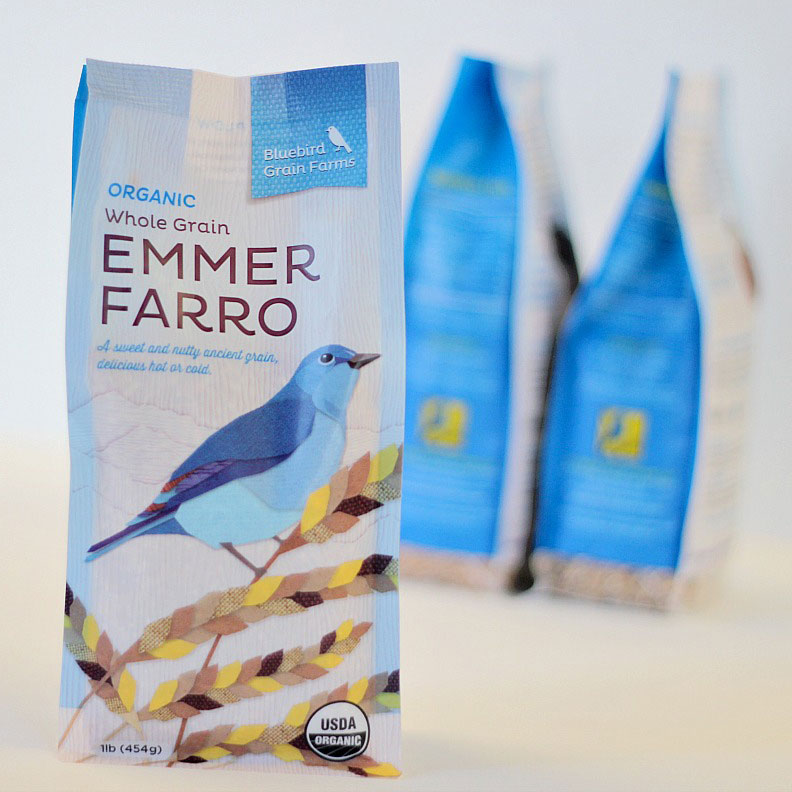 Lane became acquainted with Bluebird Grain Farms products in 2008, through Provista Specialty Foods. “I started using the organic whole grain emmer farro,” he says, because of its versatility. “At first I was just connecting it with lamb, because it’s such a natural fit with lamb.” But then, Lane says, “You can do so many other things with it. I started studding it with dried fruit or nuts, or arugula and roasted beets. It’s a warm salad or a cold salad. You can marinate it and it absorbs the flavor. In the summer you add tomatoes, or you add steak and kale for bolster. There’s just so much you can do with it.” The Red Star Tavern dinner menu currently features a lamb meatball, with ground lamb and smoked farro.
Lane became acquainted with Bluebird Grain Farms products in 2008, through Provista Specialty Foods. “I started using the organic whole grain emmer farro,” he says, because of its versatility. “At first I was just connecting it with lamb, because it’s such a natural fit with lamb.” But then, Lane says, “You can do so many other things with it. I started studding it with dried fruit or nuts, or arugula and roasted beets. It’s a warm salad or a cold salad. You can marinate it and it absorbs the flavor. In the summer you add tomatoes, or you add steak and kale for bolster. There’s just so much you can do with it.” The Red Star Tavern dinner menu currently features a lamb meatball, with ground lamb and smoked farro.

“We’re lucky to have smart diners,” says Lane of his Portland and visiting clientele. “We get people looking for nuances and twists. We want to highlight for them the best of what we offer in the Northwest.” To this end, Lane works closely with Red Star Tavern’s head bartender, Brandon Lockman, to connect the dots between food and drink, so whether clients are ordering a local craft beer or a high-end Japanese whiskey, their drinks and food work well together. “People can come in and get some of the best beers, wines, and craft cocktails available, paired with seasonal menus,” Lane says. “We’ve got a great team working hard to provide that experience.”
Red Star Tavern, Lane continues, “has remained relevant. We provide a quintessential modern Pacific Northwest tavern experience.”
To learn more about Red Star Tavern, visit their website. (Sadly they closed since this post was written).
